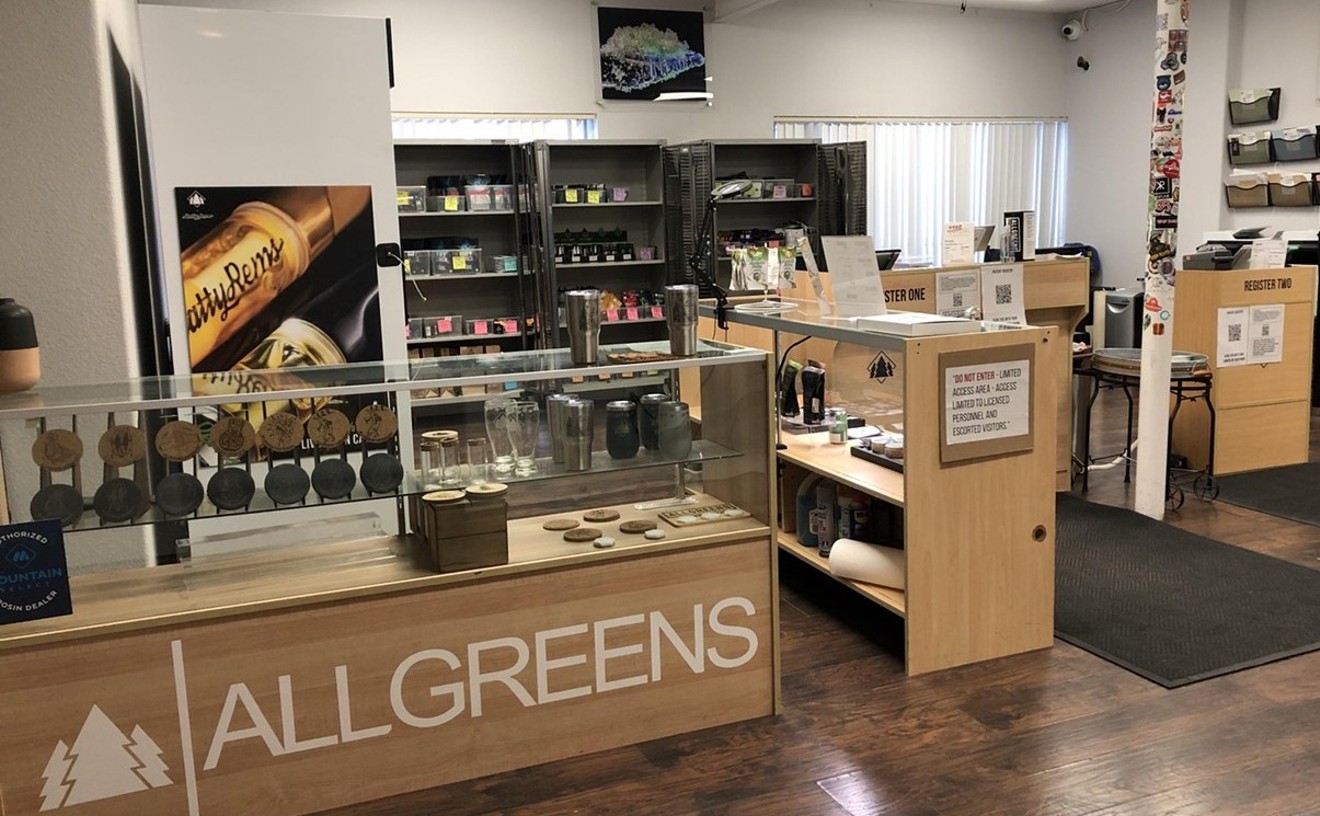The news that Senator Jeff Sessions will be the new Attorney General made pot proponents very unhappy. Is it time to panic? Here's an opinion from attorney Tom Downey, former head of the Denver Department of Excise and Licenses, who's watching developments in D.C. closely:
What will happen to the legal marijuana industry in Colorado and other states under the Trump administration and newly named Attorney General Jeff Sessions? The short answer is that we don’t know, but significant change is unlikely anytime soon.
Despite President-elect Trump’s varied public comments regarding marijuana on the campaign trail, and the anti-marijuana stance of several key players in his inner circle, I suspect that the Trump administration will not wield the power of the federal government to shut down the state legal marijuana industry. Enforcing federal law at this point in the country’s marijuana policy experiment would be practically challenging. Further, pro-business, libertarian and public safety arguments may ultimately appeal to the Trump administration in its assessment of legal marijuana.
While more than half the states have some form of legal marijuana, it remains federally illegal. And under the Supremacy Clause of the U.S. Constitution, federal law trumps state law. Since 2009, however, the federal government has followed a policy of non-enforcement. In short, the federal government is not enforcing federal marijuana laws as long as anyone involved is in compliance with state marijuana laws. It is akin to the non-enforcement of traffic laws, for speeding a few miles per hour over the limit.
Before the election, expectations were overwhelming that a Clinton administration would have continued the policy of non-enforcement. Some also assumed that a Clinton administration would have moved to re-schedule or de-schedule marijuana. Rescheduling marijuana from Schedule I would allow use like a regular prescription issued by a physician and filled by a pharmacy under a DEA license, like codeine. It would take years of clinical trials before federally legal medical marijuana would come onto the market, and it would only include a small fraction of products currently available under the fractionalized state systems. De-scheduling would allow use for non-medical, recreational purposes, like alcohol. It could threaten the existing state industry players with a potential takeover by tobacco companies.
The biggest question for the Trump administration is who will be making marijuana-related decisions. Prior to and during his campaign, Trump spoke of different approaches, from legalization, to deferring to states, to enforcing federal law. Marijuana is not among his listed priorities for his first 100 days. Vice President-elect Mike Pence, who chairs the transition team, has stated his strong opposition to legalized marijuana, as has Sessions.
If Trump decides to take an anti-marijuana approach, he will have different options with different associated execution realities. First, he could simply declare that he won’t re-schedule or de-schedule, dashing the hopes of legalization advocates. He could shut down recreational marijuana only, or he could shut down all state legal marijuana. If any of these options came to be, Denver’s newly approved experiment with on-site consumption at public establishments like bars and cafes could be a visible target for an anti-marijuana stance. After drawing international attention with the opening of the world’s first recreational marijuana stores in 2014, all eyes could again be on Denver.
Executing such an extreme policy — enforcing federal law — would be far easier said than done. The U.S. Supreme Court has already ruled in favor of legal states in an original jurisdiction suit brought by neighboring states. The narrow decision means that state marijuana laws are not de facto in violation of federal law under the Supremacy Clause. Only actual marijuana cultivation, sales and use under those laws are illegal. This means that states would be able to mount a court challenge to a federal order to cease their state operations. Key to the states’ argument would be safety and financial issues. For example, if you try to shut down state legal operations immediately, tons of pot would flood the illegal market. States would need 18 to 24 months to phase out regulated marijuana safely and to prepare for the holes in their state budgets.
The federal enforcement option assumes that the anti-marijuana faction within the Trump administration would hold sway, which I do not. I suspect that Trump’s core, pro-business ideology would far outweigh social-policy arguments. Shutting down state legal marijuana would cost tens of thousands of jobs across the country and eliminate a multi-billion-dollar industry poised for growth.
Maintaining the status quo, or even relaxing the federal government’s approach to marijuana would be a nod to the libertarian wing of the Republican Party, as well as favoring his children’s generation’s leanings over those of Pence and Sessions. Finally, he may find the public safety arguments appealing, trying to keep marijuana off the black market, and opening up the banking system to avoid the dangers of large cash operations. If these factors outweigh social conservatism within the Trump administration, the country’s legal marijuana experiment would march on under the new president. These are interesting times indeed for the legal marijuana industry. While states continue to charge forward with state legalization, we await the Trump administration’s definitive stance on marijuana.
Tom Downey is a regulatory attorney with Colorado's Ireland Stapleton Pryor & Pascoe. The opinions above are his, and do not necessarily reflect the position of the law firm.
[
{
"name": "Air - MediumRectangle - Inline Content - Mobile Display Size",
"component": "12017618",
"insertPoint": "2",
"requiredCountToDisplay": "2"
},{
"name": "Editor Picks",
"component": "17242653",
"insertPoint": "4",
"requiredCountToDisplay": "1"
},{
"name": "Inline Links",
"component": "18838239",
"insertPoint": "8th",
"startingPoint": 8,
"requiredCountToDisplay": "7",
"maxInsertions": 25
},{
"name": "Air - MediumRectangle - Combo - Inline Content",
"component": "17261320",
"insertPoint": "8th",
"startingPoint": 8,
"requiredCountToDisplay": "7",
"maxInsertions": 25
},{
"name": "Inline Links",
"component": "18838239",
"insertPoint": "8th",
"startingPoint": 12,
"requiredCountToDisplay": "11",
"maxInsertions": 25
},{
"name": "Air - Leaderboard Tower - Combo - Inline Content",
"component": "17261321",
"insertPoint": "8th",
"startingPoint": 12,
"requiredCountToDisplay": "11",
"maxInsertions": 25
}
]










